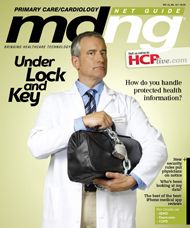HCPLive.com Blog Spotlight: Neuroenhancement: One Pill Makes You Smarter...
In each issue of MDNG, we will showcase a post by one of the HCPLive.com bloggers. This month, we have selected a post from The Nerve Center, written by Victor G. Dostrow, MD.
The Internet is filled with reports of remarkable cognitive enhancement with various nostrums. Many are not regulated, and the pages are typically associated with glowing testimonials and a link to sign up for uninterrupted (and uninterruptible) delivery of the miracle substance. More to the point of this post, other blogs, reports, and forum comments opine as to notable benefits of taking prescription medications marketed to treat conditions and diseases. Unfortunately, our patients often read these same reports with rather less skepticism than we may have about the purported benefits. What is our moral duty when asked to prescribe for this kind of purpose, now generally referred to as neuroenhancement? What are we to say to them when they request our opinion on such therapy? Have you considered your thoughts on using drugs to modify otherwise normal people? The American Academy of Neurology has been working for some time on advice to the practitioner on this matter, and a guideline was recently released (via electronic publication ahead of print publication). This report, crafted by the Ethics, Law and Humanities Committee, focused on the ethics of such prescribing, concluding that prescribing or recommending products is generally acceptable.
The underlying issue is that persons with no clear disease or impairment are asking about ingesting substances for the purpose of improving attention, memory, and/or cognition. Often, neurologists and other practitioners are asked to prescribe medications for these purposes. Examples include methylphenidate (Ritalin and others) and donepezil (Aricept). Much has been said in quite abstract terms about the moral and ethical implications of neuroenhancement, but the Academy seeks to provide more practical guidance.
This analysis proceeds by commenting on this prescribing being outside the traditional goals of medical practice, but notes that most would consider it acceptable, as the goal is the improvement of patient well-being. Principles of ethics of medicine (beneficence, autonomy, etc) in this setting are the primary focus. In general, as long as a prescriber carefully considers these principles, neuroenhancement prescribing is ethically permissible. One particular ethical consideration is the potential for confl ict of interest, especially if the prescriber has a financial interest, such as equity interest in the manufacturing company. In addition to the ability to ethically prescribe, a prescriber may, if he or she so chooses, ethically refuse to prescribe. One analogy used extensively in this guideline is cosmetic surgery. The moral and ethical framework between the two is quite similar.
The role of regulation and the FDA is analyzed, as, at present, neuroenhancement is “off-label.” Medical liability is another concern. The authors believe that courts will apply the same standards regarding medical negligence that would obtain to more traditional practice. There is a possibility that medical expert testimony will not be required in litigation associated with this type of prescribing, as neuroenhancement is “elective.” Also of concern is the potential future alteration of rules for court proceedings regarding neuroenhancement to favor the plaintiff.
One additional material future concern is neuroenhancement for children. The effects of substance ingestion on brain development will be difficult to characterize. And, resolving a difference of opinion about a proposed medication between the child and parent raises additional issues of autonomy.
So, as prescribers, we are now operating within established ethical guidelines to prescribe medications for neuroenhancement. And, we are acting within the scope of current laws if we so prescribe. We are equally free to refuse to prescribe, if we explain to the patient why we are doing so. It is now up to the reader to exercise due clinical and ethical judgement in deciding how this applies to daily practice.
Dr. Dostrow is a neurologist, epileptologist, and clinical neuropharmacologist, and has been practicing for many years. Previous and current academic appointments include neurology, psychiatry, and clinical pharmacy.
